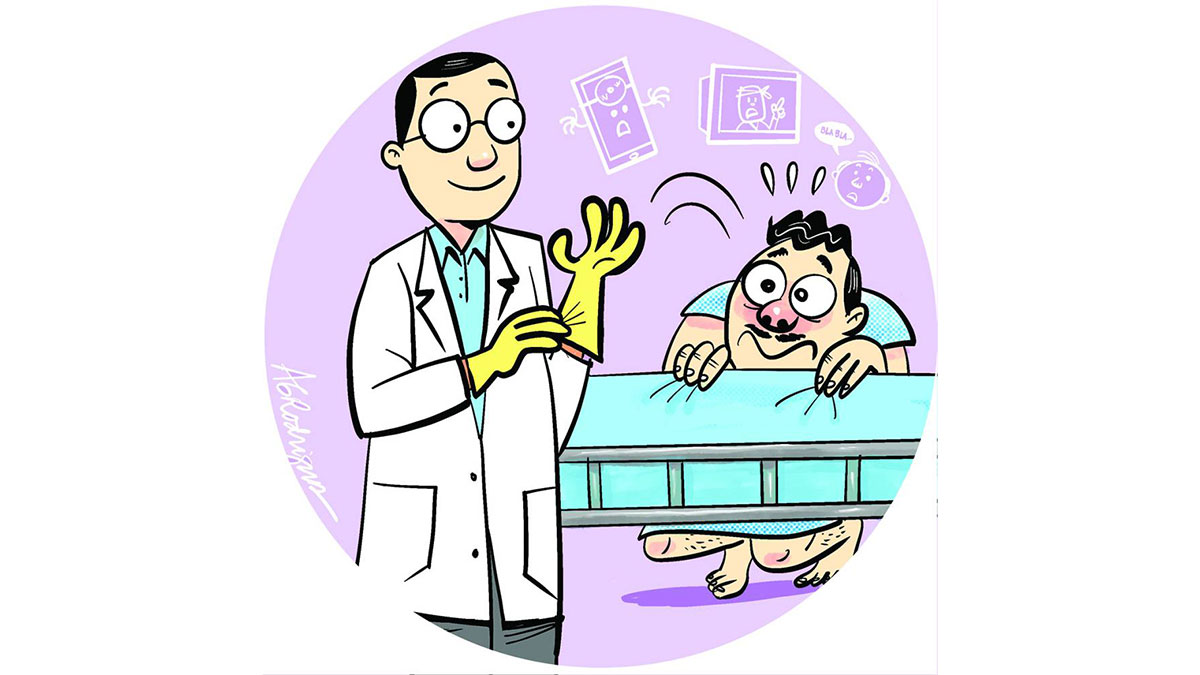Stress and anxiety induced by the COVID-19 pandemic are impacting migraine sufferers around the world. Fortunately, there are effective ways to ease symptoms and prevent migraine attacks. This was the key message of Dr. Corina Maria Socorro A. Macalintal, consultant neurologist at Asian Hospital and Medical Center during “TAMA NA: Iwas Migraine, New Normal,” a virtual media briefing organized by Novartis Healthcare Philippines.
Migraine is a type of headache disorder that involves recurrent attacks of moderate to severe head pain that is typically throbbing, often on one side of the head and associated with nausea, vomiting, and sensitivity to light and sound. “Stress, lack of sleep, strong odors, and certain foods are some of the common triggers of migraine. To help manage migraine, patients are encouraged to identify their triggers and try to avoid them. Although over-the-counter pain relievers are often the first line of treatment in migraine, there are abortive therapies that are specific for migraine. We caution the patients to limit the use of these abortive treatments to no more than 2 days a week. Patients who have migraine attacks at least 4 days a month require preventive therapy,” said Dr. Macalintal.
According to Dr. Macalintal, migraine sufferers may grow anxious due to the overlap of migraine and COVID-19 symptoms. “Headache maybe a manifestation of COVID-19 but it is not as common as other symptoms like fever and dry cough. Migraine attacks may be more common these days because of stress and anxiety caused by the pandemic. It is important for migraine patients to consult a neurologist as migraine management is individualized, depending on the patient’s other health concerns and different reactions to medications. Patients should exercise caution on medication overuse, which can cause headache.
There are pharmacological and non-pharmacological treatment options for migraine management. Migraine patients and their neurologists should discuss treatment goals, which should not be limited to stopping the headache attack but to prevent recurrence. Newer treatment options on preventive management address recurrence and other limitations of oral medications.”
“The limitations imposed by the COVID-19 pandemic have impacted patients globally, including migraine sufferers. To cope with these limitations, we encourage migraine patients who are stable and do not require acute emergency care to utilize telemedicine tools so that they can stay connected with their doctors,” said Dr. Rosalina Espiritu-Picar, President of the Philippine Neurological Association (PNA).
The PNA has drafted telemedicine guidelines that all of its members follow to ensure the safety and privacy of both patients and doctors. To find a neurologist anywhere in the country and for a list of neurologists accepting telemedicine consultations, patients are encouraged to visit the official PNA website at www.philippineneurologicalassociation.com or the trunkline of the hospital nearest them to ask for a neurologist. Telemedicine tools are a practical alternative to enable doctor-patient interaction while maintaining social distancing and complying with community quarantine protocols.
“It’s very difficult to be a migraine sufferer. My worst migraine attacks last three days,” says TV host and model Ms. Bianca Gonzalez who was diagnosed with migraine when she was a child. Her father is also a migraine sufferer. “Whenever I had to host shows and events, there were bright lights and loud sounds, which are all migraine triggers. I have to take a strong medicine and take a nap backstage before showtime, so I could ease my migraine headache and be able to perform my role as host.”
Bianca is grateful to her husband for supporting her whenever she has migraine attacks. She also thanks other migraine sufferers who express their support whenever she posts on social media. “It’s a huge help knowing that I am not alone in coping with this debilitating disease.” Bianca urges people who suffer terrible headaches and suspect migraine to consult a doctor. “You can consult a doctor online during this community quarantine. Your doctor will determine which is the right treatment for you.”
In line with its commitment to reimagine migraine care, Novartis has developed erenumab, the first of its kind to be approved by the US FDA, EMA, Swissmedic and Australian TGA for the prevention of migraine. In the Philippines, erenumab is approved for the prevention of migraine in adults. “Erenumab specifically targets the calcitonin gene-related peptide or CGRP receptor, which plays a key role in the pathophysiology of migraine. It has been shown to safely and effectively reduce migraine frequency, allowing patients to have more migraine-free days. This innovative anti-migraine medicine is self-administered once monthly via a pre-filled syringe. It does not require a loading dose and is easy to use. Erenumab has been launched in 43 other countries and is now available in the Philippines,” said Dr. Giovell Barangan, Chief Scientific Officer, Novartis Healthcare Philippines.
Around 12 million Filipinos suffer from migraine, according to the Global Burden of Disease Study 2016. According to a recent World Health Organization (WHO) report, close to 14% of people with COVID-19 experience headaches, which may include migraine headaches. The Speak Your Migraine PH online survey conducted by Novartis among Filipino migraine sufferers revealed that stress and anxiety can trigger migraine attacks.
A social media analysis done by Novartis found that the stress and anxiety induced by the COVID-19 pandemic have triggered migraine attacks in patients all over the world. The analysis looked at 3,645 posts (in English), mostly on Twitter, from March 15 to April 15, 2020 that mentioned migraine.
The main stressor among migraine sufferers was the overlap of migraine and COVID-19 symptoms such as headache, nausea and vomiting. Due to these overlapping symptoms, migraine sufferers feared they had COVID-19, which triggered migraine attacks. Limited access to clinic visits and migraine medications due to the coronavirus lockdown and fear of infection increased the risk of patients’ migraine to worsen, which further induced stress and anxiety.
It is important for patients to monitor their migraine with available tools such as the Migraine Buddy, an advanced migraine headache diary and tracking app designed with neurologists and data scientists. The Migraine Buddy app is available on the App Store and Google Play.
“Monitoring migraine attacks can help migraine sufferers recognize trigger factors and warning signs. It can also help the doctor assess if the patient’s migraine medication is working. The good news is that new treatment options on preventive migraine care are now available,” said Ms. Christine Fajardo, Corporate Affairs Head, Novartis Healthcare Philippines.

To learn more about migraine and join the conversation with fellow migraine sufferers, visit the Speak Your Migraine FaceBook page at https://www.facebook.com/speakyourmigraineph
ADVT












































